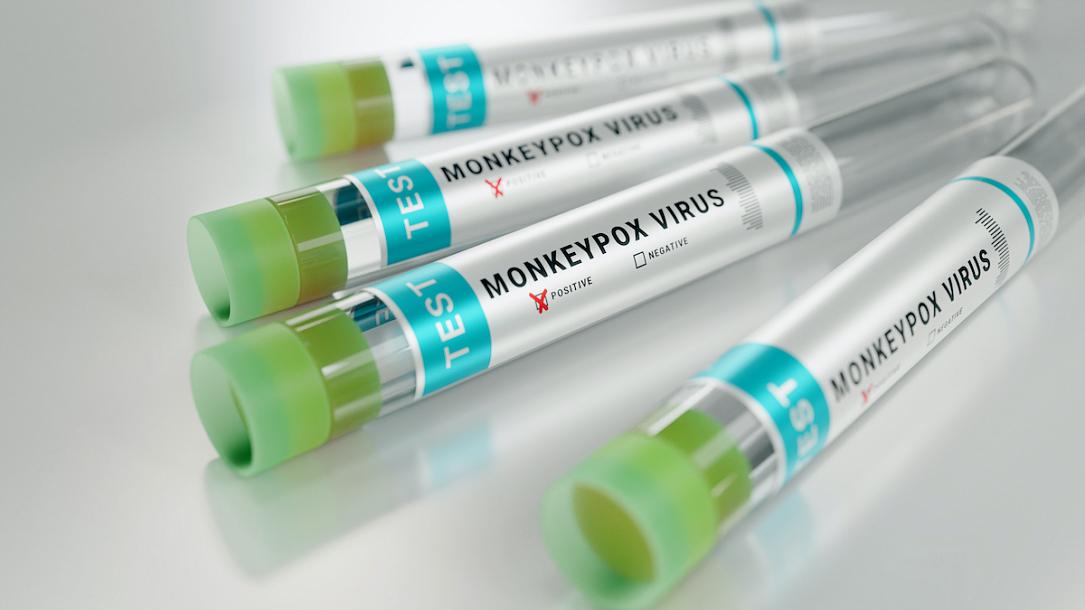Romania reports first monkeypox cases



A 26-year-old man from Bucharest was diagnosed with monkeypox on Monday, June 13, making him the country’s first case. The second case was confirmed one day later on a 32-year-old-man.
The first patient started having symptoms 5 days ago, and he presented himself to the hospital, where he was diagnosed on June 13 and was subsequently put in isolation and submitted for treatment. The confirmation for the second patient came on June 14.
The two men are in good condition. They will stay hospitalized and in isolation for a total of 21 days.
An epidemiological investigation is being carried out by the Bucharest Department of Public Health, but for now, it appears that the first patient was infected by his partner, who has recently traveled to several countries in Europe where there is a high number of monkeypox infection cases.
Last week, the World Health Organisation stated that the risk of spreading the monkeypox virus to more and more non-endemic countries is real. According to the president of WHO, Tedros Adhanon Ghebreyesus, more than 1000 cases of monkeypox have been confirmed in 29 countries where the disease is not endemic, with most cases concentrated in the UK, Spain, Portugal, Germany, and Canada. Still, the WHO has not issued a recommendation for travel and trade restrictions at this time.
Towards the end of May, Romanian Minister of Health Alexandru Rafila announced that Romania would be purchasing around 1,000 doses of the smallpox vaccine known as Imvamune or Imvanex, in order to be prepared for any possible occurrence of monkeypox. monkeypox vaccine to deal with eventual cases. Although the vaccine was not formulated specifically for monkeypox, it has so far been shown to be effective.
During the Ministry of Health’s most recent public statement, it was said that the vaccine will arrive in Romania once the European Commission has finalized the purchase and that Romania is to receive circa 2500 doses. Ministry representatives specified that the vaccine is supplied by an American manufacturer and is currently only available in small quantities.
Monkeypox is a rare viral infection with accidental human infection, usually occurring mainly in West and Central Africa following physical with an infected rodent or primate. It is caused by an orthopoxvirus, which is related to the smallpox and chickenpox viruses.
Between people, it is transmitted via close physical contact with an infected person’s lesions or bodily fluids, or through contact with materials that have touched an infected person. Many cases have been detected through STD surveillance, but it is not known whether the virus can be spread through vaginal fluid and semen. Additionally, a person is deemed contagious during the period that they are symptomatic, but it is currently unknown whether monkeypox can be spread by virus carriers that do not present any symptoms.
Symptoms are mostly mild, but uncomfortable, and include itchy and painful blistering lesions all over the body, fever, chills, headache, muscle aches, swollen lymph nodes, and fatigue. There is currently no cure, but the WHO says that the illness is self-limiting and will go away on its own after typically lasting for 2−4 weeks. It is not considered dangerous, with only around 3–6% of reported cases having been fatal in endemic countries in recent times.
The Ministry of Health has stated that „Any illness during travel or on return from an endemic area should be reported to a medical specialist, including information on all travel and recent vaccination history,” and that „Anyone who develops an unusual rash should consult a doctor”.
maia@romania-insider.com
(Photo source: N Bakker | Dreamstime.com)